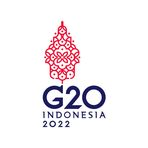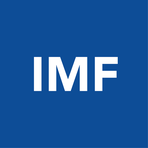India: The Rising Phoenix in a Turbulent Global Economy
April 22, 2025, 9:51 pm

Location: Indonesia, Jakarta Special Capital Region
Employees: 51-200
Founded date: 2019

Location: United States, District of Columbia, Washington
Employees: 1001-5000
Founded date: 1944
Total raised: $33.23M
In a world of shifting sands, India stands as a beacon of resilience. Amidst the storm of global trade tensions, the country is carving its own path. The recent imposition of tariffs by the United States has sent ripples through international markets. Yet, India remains steadfast, navigating these turbulent waters with a steady hand.
The clock is ticking on a 90-day pause for negotiations. India’s special commerce secretary, Rajesh Agrawal, is set to embark on a crucial trip to Washington, D.C. His mission? To secure a solid agreement that could redefine trade relations. This is not just about tariffs; it’s about positioning India as a key player in the global economy.
Foreign direct investment (FDI) tells a compelling story. In the first eight months of FY25, India saw a 17.9% year-on-year increase in gross FDIs, totaling USD 55.6 billion. This marks a significant milestone, as the country crosses the USD 1 trillion mark in cumulative FDI since 2000. Investors are increasingly viewing India as a safe haven, a refuge amid global uncertainty.
Rohan Dani, an investment professional, highlights a critical trend. The MSCI India Index shows that India has outperformed many regional peers, with a decline of less than 3% since April 2025. This resilience is not just a statistic; it reflects a growing confidence in India’s economic fundamentals. Investors are redirecting their capital toward India, drawn by robust domestic demand and shifting global trade flows.
The startup ecosystem in India is a vibrant tapestry. Over the last decade, startups have contributed nearly 15% to the nation’s GDP. In the first quarter of 2025 alone, Indian tech startups raised USD 2.5 billion in funding. This marks a 13.64% increase from the previous quarter and an 8.7% rise year-on-year. India is now the third most-funded country globally, trailing only the U.S. and the U.K. This surge in funding underscores the dynamism of India’s tech landscape.
Deepak Gupta, a general partner at WEH Ventures, emphasizes the significance of India’s growth story. The country is not just a large economy; it’s a high-growth one with a thriving startup ecosystem. As global tensions rise, particularly with China, India emerges as a preferred destination for capital. Investors are seeking stability, and India offers just that.
High-profile visits are adding momentum to this narrative. U.S. Vice President JD Vance is on a four-day trip to India, engaging in talks with Prime Minister Narendra Modi. This visit comes at a pivotal moment, as India aims to leverage tensions between the U.S. and China to achieve a USD 500 billion trade target by 2030. The stakes are high, and the opportunities are ripe.
Finance Minister Nirmala Sitharaman is also making waves. Her five-day trip includes meetings at the International Monetary Fund and the World Bank, as well as discussions with G20 finance ministers. The focus is clear: strengthening ties with the U.S., India’s largest trading partner. The message is not just about tariffs; it’s about collaboration and mutual growth.
Vikas Choudhury, managing partner at Playbook Partners, encapsulates the sentiment. India is not merely an option; it’s the answer. The country boasts a stable government, strong geopolitical relationships, and robust economic growth. Its large domestic market, driven by a young, digital-first population, underpins demand. India is fast becoming a global hub for manufacturing and services, supported by structural reforms and supply chain diversification.
As the world watches, India is positioning itself as a key player in the global economy. The narrative is shifting. No longer is India just a participant; it is a leader. The country’s ability to adapt and thrive in the face of adversity is a testament to its resilience.
In conclusion, India is not just weathering the storm; it is rising above it. The combination of a strong startup ecosystem, increasing foreign investment, and strategic diplomatic engagements paints a promising picture. As global uncertainties loom, India stands ready to embrace the future. The phoenix is rising, and the world is taking notice.
The clock is ticking on a 90-day pause for negotiations. India’s special commerce secretary, Rajesh Agrawal, is set to embark on a crucial trip to Washington, D.C. His mission? To secure a solid agreement that could redefine trade relations. This is not just about tariffs; it’s about positioning India as a key player in the global economy.
Foreign direct investment (FDI) tells a compelling story. In the first eight months of FY25, India saw a 17.9% year-on-year increase in gross FDIs, totaling USD 55.6 billion. This marks a significant milestone, as the country crosses the USD 1 trillion mark in cumulative FDI since 2000. Investors are increasingly viewing India as a safe haven, a refuge amid global uncertainty.
Rohan Dani, an investment professional, highlights a critical trend. The MSCI India Index shows that India has outperformed many regional peers, with a decline of less than 3% since April 2025. This resilience is not just a statistic; it reflects a growing confidence in India’s economic fundamentals. Investors are redirecting their capital toward India, drawn by robust domestic demand and shifting global trade flows.
The startup ecosystem in India is a vibrant tapestry. Over the last decade, startups have contributed nearly 15% to the nation’s GDP. In the first quarter of 2025 alone, Indian tech startups raised USD 2.5 billion in funding. This marks a 13.64% increase from the previous quarter and an 8.7% rise year-on-year. India is now the third most-funded country globally, trailing only the U.S. and the U.K. This surge in funding underscores the dynamism of India’s tech landscape.
Deepak Gupta, a general partner at WEH Ventures, emphasizes the significance of India’s growth story. The country is not just a large economy; it’s a high-growth one with a thriving startup ecosystem. As global tensions rise, particularly with China, India emerges as a preferred destination for capital. Investors are seeking stability, and India offers just that.
High-profile visits are adding momentum to this narrative. U.S. Vice President JD Vance is on a four-day trip to India, engaging in talks with Prime Minister Narendra Modi. This visit comes at a pivotal moment, as India aims to leverage tensions between the U.S. and China to achieve a USD 500 billion trade target by 2030. The stakes are high, and the opportunities are ripe.
Finance Minister Nirmala Sitharaman is also making waves. Her five-day trip includes meetings at the International Monetary Fund and the World Bank, as well as discussions with G20 finance ministers. The focus is clear: strengthening ties with the U.S., India’s largest trading partner. The message is not just about tariffs; it’s about collaboration and mutual growth.
Vikas Choudhury, managing partner at Playbook Partners, encapsulates the sentiment. India is not merely an option; it’s the answer. The country boasts a stable government, strong geopolitical relationships, and robust economic growth. Its large domestic market, driven by a young, digital-first population, underpins demand. India is fast becoming a global hub for manufacturing and services, supported by structural reforms and supply chain diversification.
As the world watches, India is positioning itself as a key player in the global economy. The narrative is shifting. No longer is India just a participant; it is a leader. The country’s ability to adapt and thrive in the face of adversity is a testament to its resilience.
In conclusion, India is not just weathering the storm; it is rising above it. The combination of a strong startup ecosystem, increasing foreign investment, and strategic diplomatic engagements paints a promising picture. As global uncertainties loom, India stands ready to embrace the future. The phoenix is rising, and the world is taking notice.